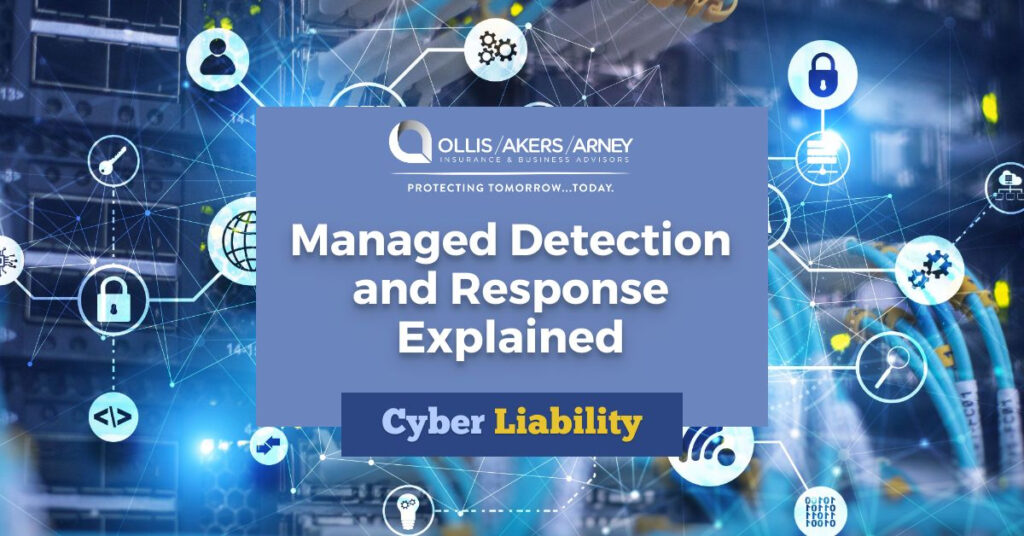The cyber risk landscape is in a state of constant evolution, with cybercriminals quick to exploit emerging technologies for malicious purposes. In response, businesses are exploring innovative methods to detect and prevent these attacks. One such option is a managed detection and response (MDR) service, which combines technology and human expertise to monitor and address cyberthreats effectively. Implementing MDR can provide a vital layer of defense, shielding a company’s data and reputation from the potentially devastating impacts of cybersecurity incidents. However, while MDR services offer significant benefits, companies must also weigh their potential drawbacks and conduct thorough assessments before deciding on adoption. This article provides more information on MDR, including its benefits and its challenges.
What Is MDR?
MDR is an outsourced cyber protective service that combines advanced technology and human knowledge to actively seek, detect, monitor and respond to cyber threats. It offers businesses an opportunity to improve their cybersecurity position in a cost-efficient manner. Although each provider’s specific services differ, the technological component of MDR may consist of tools that conduct various cyber defense functions such as vulnerability scans, threat monitoring and hunting, data analytics and sending alerts and automated responses. Artificial intelligence and machine learning technologies can also be used to improve detection algorithms and analyze large amounts of information.
The human component of an MDR system is often comprised of a dedicated cybersecurity team of experts. These trained individuals can understand specific cyber risks, recognize abnormalities, triage alerts and respond to threats or provide guidance to the business on how to do so. With these two components working in tandem, MDR can provide a stout cyber defense that works to prevent cyberattacks and mitigate their associated risks. This can help businesses avoid both first and third-party losses related to an incident while safeguarding their reputations.
MDR Benefits
MDR services can be an attractive cybersecurity option as it can provide businesses with several benefits, including the following:
- Round-the-clock service so businesses can remain protected at all times
- Rapid threat detection and response to quickly address cybersecurity events
- Threat hunting that actively seeks out signs of a cyberattack to detect issues proactively
- Advanced threat analysis that can interpret the severity of cyber alerts and guide responses
Cloud monitoring for companies that utilize cloud storage
- Cost effectiveness when compared to similar in-house services
- Additionally, MDR providers can often customize security rules and services to fit each organization’s needs, and their services can help ensure businesses meet applicable data privacy regulations.
MDR Challenges
Although MDR services offer several benefits, they also present some challenges, including the following:
- Complex integration with existing security systems may be necessary, and compatibility issues with a business’s current cybersecurity infrastructure may arise.
- Dependence on third-party providers may reduce a business’s autonomy, and the outside provider’s services may not always address issues as desired by the business. Additionally, the outside service provider may have access to sensitive company data.
- Uncertainty regarding the scope of services provided can emerge due to ambiguities in the service agreement, and this can create confusion within an organization regarding duties and responsibilities.
- Alert fatigue may become an issue, and companies may need to take steps to manage it while ensuring high-fidelity threat detection remains in place.
Conclusion
MDR services provide cyber defense benefits, but also have challenges. Businesses should analyze their needs to decide if MDR is right for them. Contact us today for more information.
This Cyber Risks & Liabilities document is not intended to be exhaustive nor should any discussion or opinions be construed as legal advice. Readers should contact legal counsel or an insurance professional for appropriate advice. © 2024 Zywave, Inc. All rights reserved.


